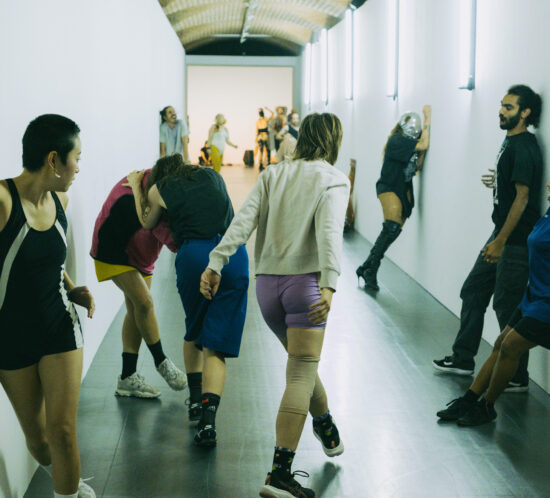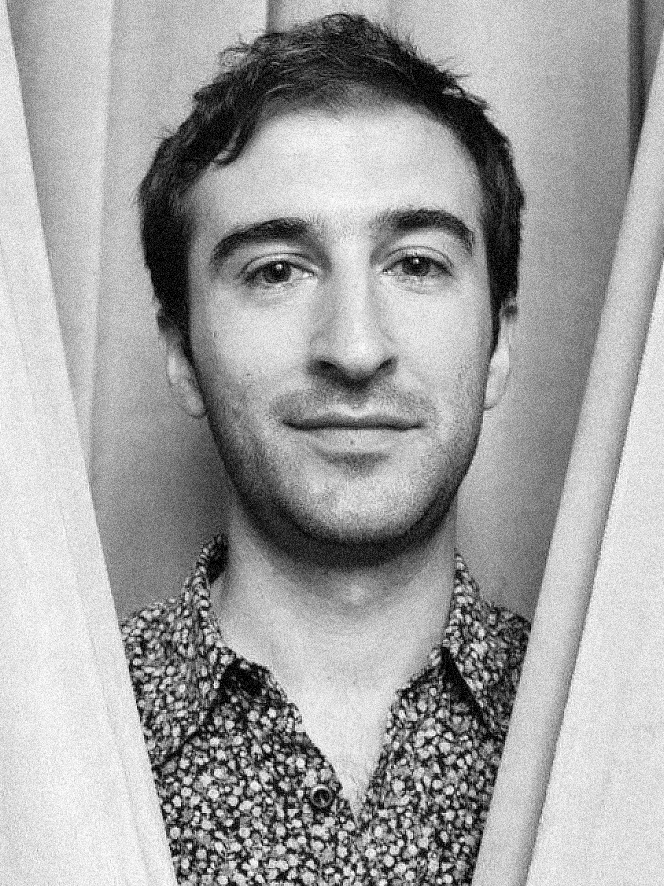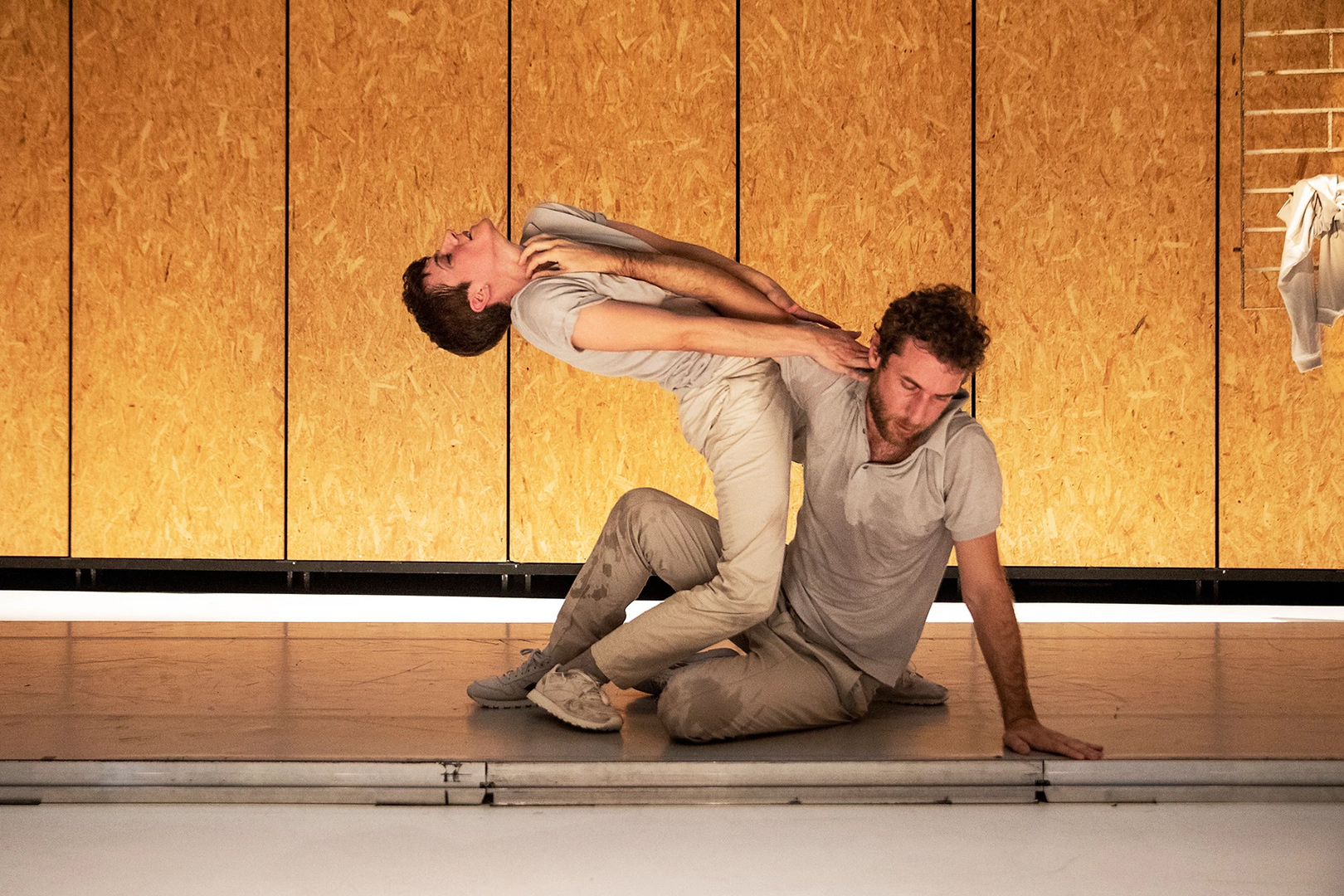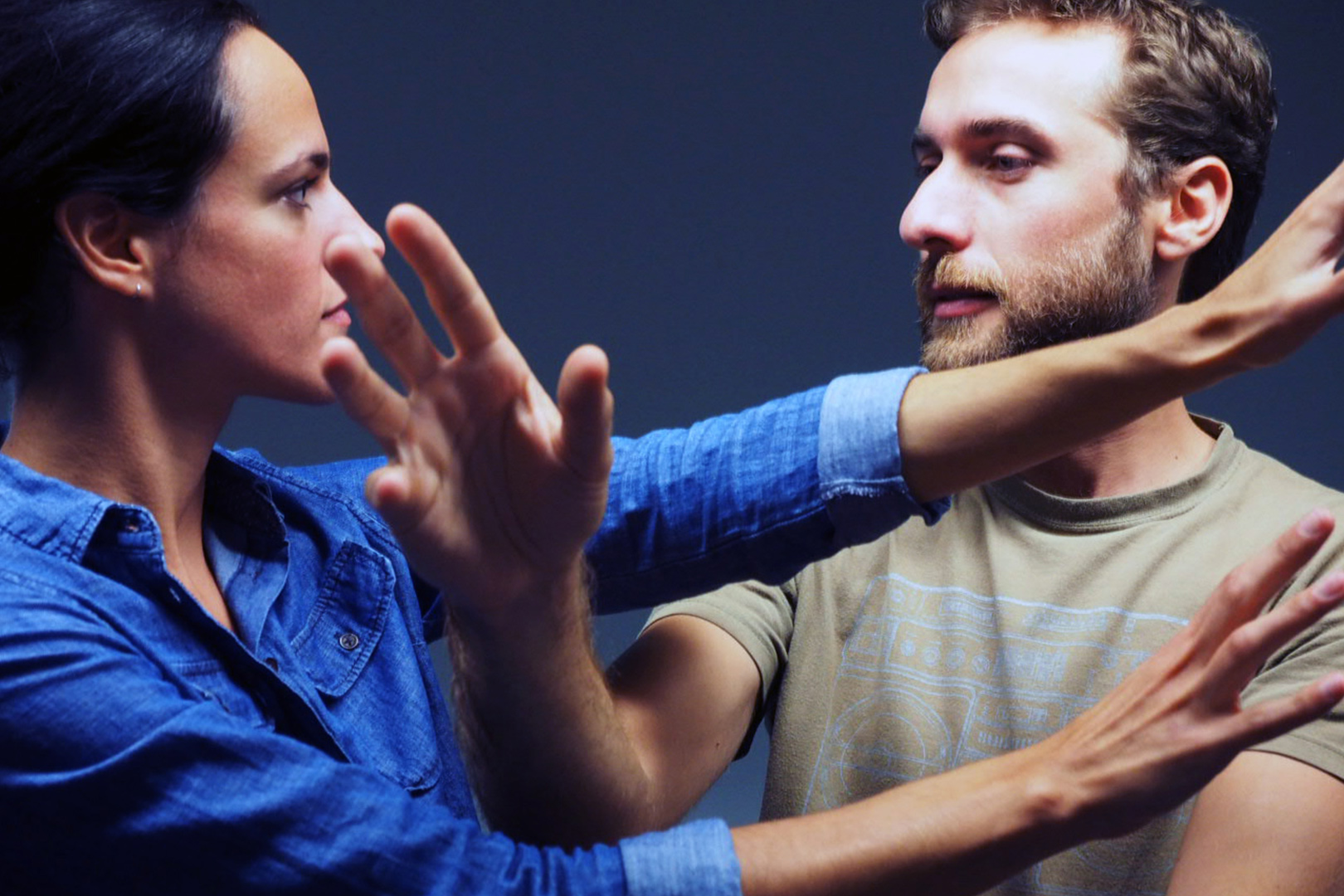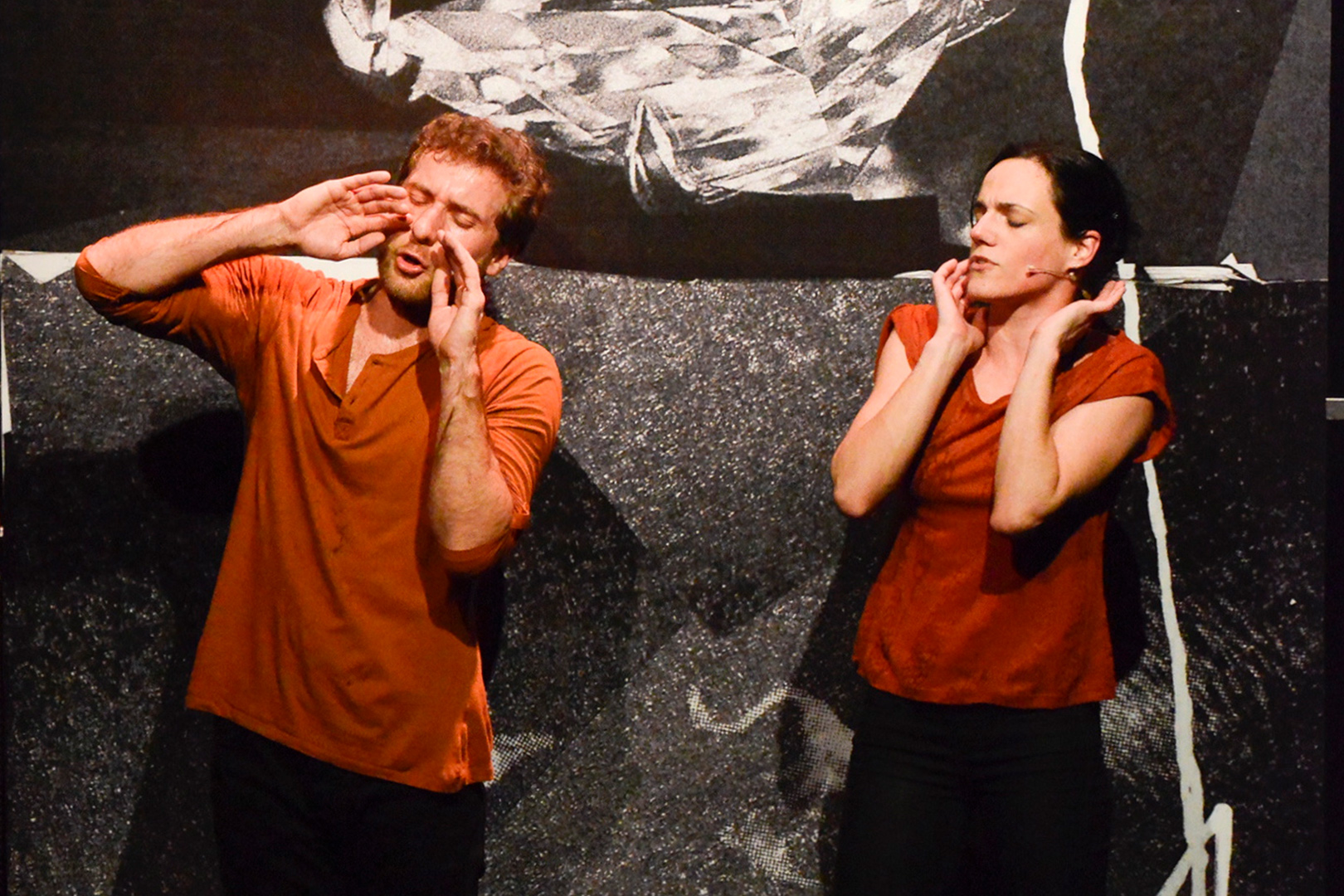PACAP 9
2026
Performing Arts Advanced Programme
Curatorship by Marcelo Evelin
From 2nd February to 30th July 2026
Applications closed
Presentation
PACAP 9 / One swallow doesn’t make a summer
Curatorship Marcelo Evelin
Artistic Collaboration Bruno Moreno
‘An undisciplined experimentation and training programme, focused on instances of group creation and conditions of collaborative performativity.
We will invest in collective processes to the detriment of individual projects, believing that it is possible to bring the singularities of the artists and their personal artistic interests into group experimentation. We are interested in negotiating with the other as a conceptual and procedural procedure, betting on shared autonomy as an exercise in alterity, in order to think of gathering and sharing as a performative act and device.
From February to July 2026, we are proposing a series of interventions in the form of creative residencies, with artists involved in collective practices that exercise a thought of the common as a choreographic situation: the game, the rite, the circle, the party. These practices will be reworked together, renegotiated as a group and eventually performed at different times during the programme.
The programme addresses three axes of experimentation with no distinction between theory and practice: body, dramaturgy, and choreography. We think of the body as a tactile and media spectacle, an artefact of an incorporated and changing time-space. We imagine dramaturgy as the activation of living matter and normative disobedience, as the apprehension and unfolding of empirical knowledge, and as an ethical and aesthetic positioning in the face of the life of forms. We invent choreography as unstable and flexible structures of grouping, repercussion, and dissolution, and as a vibration that precedes the constitution of movement as a scope for an event.
We want to approach the multiple and the rhizomatic, the diverse and the unfolded, the drift and the reconstitution, the bifurcated and the complementary. From a decolonial and non-hegemonic understanding of the world, we want to reaffirm the existence of the sensible and the utopian in the social and political spheres, in a horizon that expands and recognizes other paradigms for thinking about life and living.’
Marcelo Evelin
Information
Invited guests
Ana Rita Teodoro, André Lepecki, Christine Greiner, Coletivo Piscina (Andrei Bessa, Bibi Dória, Bruno Brandolino, Josefa Pereira, Julián Pacomio, Márcia Lança, Natália Mendonça and Romain Beltrão Teule), Eleonora Fabião, Jocelyn Cottencin, Marine Sigaut, Miguel Pereira, Piny, Tieta Macau, Venuri Pereira, Flávia Pinheiro.
Target audience
Artists with experience in the performing arts fields, who are interested in collective creation processes. The programme values collaborative practices, the ability to listen and negotiate in groups, and openness to joint experimentation. It is not aimed at those who want to develop individual authorial projects, but rather at those who want to integrate and contribute to a context of shared creation.
Language
English will be the official language of the programme.
Warning!
Applications can be sent in Portuguese and English.
Dates
-
- Closing date for applications 31.07.2025
- Auditions September
- Results announcements September
- Programme dates 02.02.2026 – 31.07.2026
Timetable
Monday to Friday from 10h00 to 17h00. This timetable is indicative only and may be subject to change.
An outline of the work schedule will be sent to the group of people selected before the programme begins.
Applications
Elements to send:
-
- A 3–5-minute video in which you appear telling a story about someone else, as if it were your own. A story that the other person told you or that you witnessed them living. The story must be true.
- Describe a show, performance or group choreography that you have invented in all its conceptual, aesthetic, dramaturgical and choreographic details. Imagine that you have no budget limits and don’t need to convince any programme/curator of your project in order to realise it.
- Name 3 works by artists who are important references for your work. They can be from any artistic language and any period in the history of art.
- A brief CV, a photo of yourself and a portfolio.
- A brief motivation letter
! IMPORTANT NOTE !
The links sent must provide direct access to online viewing of the files (Youtube, Vimeo, etc.).
Selection process
1. Application stage
-
- Fill in the application form on the Forum Dança website
2. Auditions stage
-
- Auditions can be held in person at Espaço da Penha or, if you are outside Europe, online via the Zoom app
Tuition fees
-
- Registration: 200€;
- Payment in full: 2000€;
- Payment in two installments: 1100€ x 2.
Scholarships
There are a few scholarships available:
- 2 scholarships offering a 50% reduction of the tuition fees.
- 1 scholarship offering 100% reduction of the tuition fees, aimed at artists from Portuguese Speaking African Countries or black artists living in Portugal.
- Artists residing in Portugal are eligible for up to 50% reduction of the tuition fees through scholarships given out by the GDA Foundation (In cases where the applicant is a member of the GDA this increases up to 75%).
Application form
Important!
Applications and all documentation can be sent in Portuguese and English.
All fields are mandatory.
Bios
Marcelo Evelin

Marcelo Evelin is a dancer, choreographer and researcher. He lives between Teresina and Amsterdam and works in Brazil, Japan and several European countries as an independent artist at the head of the Demolition Incorporada Platform, based at CAMPO, a space for Residence and Resistance in the Performing Arts in Teresina, Piaui. His shows ‘De Repente Fica Tudo Preto de Gente’, ‘Batucada’ and ‘A Invenção da Maldade’ are currently touring theatres and festivals around the world. He has been teaching at the Amsterdam School of Arts since 1999 and creates projects at universities and masterclasses, including ISAC (Brussels), Reina Sofia Museum (Madrid), EXERCE (Montpellier) and CND (Paris). In 2019 he was awarded the title of Doctor Honoris Causa by the Federal University of Piauí. In 2020 he created ‘And Yes, I sad Yes, I will Yes’ for Coroline Eckly/Compania Carte Blanche (Bergen, Norway), ‘Drama’ for La Manufacture (Lausanne, Switzerland), ‘La Nuit Tombe Quand Elle Veut’ (Rennes, France) in collaboration with Latifa Laabissi, and re-presented his solo ‘ai, ai, ai’ (1995) at the Festival d’Automne in Paris. In 2022 he recreated the performance event BARRICADA for the Transborda Festival (Almada, Portugal) and premiered UIRAPURU, the latest creation by Plataforma Demolition Incorporada.
Bruno Moreno

Bruno Moreno was born in 1988 in São Paulo. Since 2018 he has lived between the capital of São Paulo and Teresina/PI, where he is a resident artist at CAMPO arte contemporânea. He has a degree in performing arts from the University of São Paulo and is a performer and choreographer.
Since 2014 he has collaborated with the Marcelo Evelin/Demolition Incorporada platform. He has collaborated as a performer with choreographers Alejandro Ahmed, Luis Garay, Gustavo Ciríaco and was a member of [pH2]: estado de teatro, where he created works as a performer, director and choreographic director. His creations start from choreography and oscillate between performance, installation and video.
He has taken part in the residency programme at Espaço Alkantara (Lisbon), as well as performing at Mostra VERBO (São Paulo). His video works have been shown at the Tiradentes Film Festival (Brazil), the Ann Arbor Film Festival (USA), the Short Waves Festival (Poland), Short Out (Italy), the Accesos magazine of artistic practices at the Reina Sofia Museum (Spain), and are part of the collection of works at the Paraná Museum of Contemporary Art. He was one of the resident artists on the PIVÔ Research 2024 programme.
Participants
Beatriz Baião (PT), Carlota Mantecón (ES), Damien Najean (FR), Giulia Romitelli (IT), Guillermina Gancio (UY), Hernie Harmon (DE), Jakob von Kietzell (DE), Joana Duvet (PT), Katerina Giannouli (GR), Luna Anais (CH), Marina de Moraes (BR), Marusya Byzova (RU), Maud Buckenmeyer (FR), Minjin Lee (KR), Renan Capivara (BR) and Sérgio Diogo Matias (PT).
PACAP 9 Activities
Support and Partnerships
Co-production PACAP 9: Teatro do Bairro Alto
Co-production in Residence PACAP 9: O Espaço do Tempo
Support PACAP 8: Alkantara | Casa da Dança – Almada | Fundação GDA | OPART, E.P.E/Estúdios Victor Córdon | O Rumo do Fumo | Piscina





